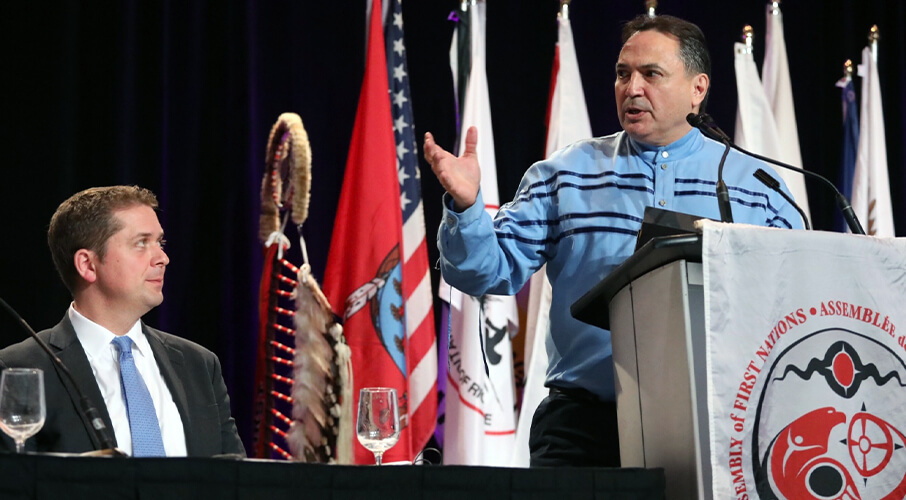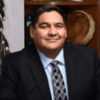It is time for the Canadian political system to work with Indigenous leaders to create effective partnerships that generate opportunities for all Canadians, write Sharleen Gale, Stephen Buffalo, and John Paul.
The federal election campaign provides all national parties with an opportunity to bring forward their ideas for the betterment of Canada.
First Nations, many of whom live in conditions that other Canadians would be unacceptable and who cope with the legacy of generations of colonialism and government paternalism, will be listening very closely for signs that the political parties understand our needs and stand with us as we search for solutions.
We are nervous once again.
All the political parties want an end to Indigenous poverty. They all want to create healthier, well-governed communities. They know we have a housing crisis in many settlements. All understand that our education system requires urgent repair. Our leaders speak with such eloquence and passion that it is impossible for politicians to ignore our real and urgent needs.
But real progress has been painfully slow. Sadly, each electoral cycle seems to start the discussion over again.
The diversity of our nations and the sharp differences in economic and social circumstances in our communities makes it clear that “one-size fits all” national solutions will not work. There is ample evidence, in contrast, that community empowerment is the best solution. Strong well-governed First Nations with decent infrastructure do well, particularly if there are economic opportunities and a decent chance to work. This is hardly surprising for the same formula works for Canadians at large.
First Nations truly want what other Canadians take for granted, combined with the ability to revitalize our languages and our cultures.
We believe that economic prosperity is the essential foundation for the long-term revitalization and strengthening of our communities. First Nations cannot and will not flourish if they are expected to subsist on government handouts. This not our history. Before the expansion of welfare in the 1960s, we worked hard and looked after ourselves. Welfare harms our communities and undermines our confidence and well-being.
First Nations need the opportunities to break free of the culture of dependency that constraints our growth.
We believe the Indigenous self-government is the key. First Nations can make their own decisions and accept the need to be fully accountable to our members and our elders. Our communities, with the support of the federal government, have made significant strides in recent years, re-establishing traditional governance and setting local priorities. The contrast to the intense reliance on Indigenous Affairs, with its complex web of programs, budget submissions, applications and reporting requirements, is stunning. Properly supporting Indigenous governments is the essential for real and substantial change.
We believe that political parties, in recognizing the authority of our treaties, respecting the “honour of the Crown,” and respecting the spirit of the United Nations Declaration on the Rights of Indigenous Peoples, must listen to the priorities and opinions of all Indigenous peoples. We are troubled that political parties and governments often listen to some First Nations but not others, particularly on matters relating to resource development. All First Nations deserve the same respect and attention on matters of great importance to our communities.
Resource projects require extensive consultations with all affected First Nations. First Nations favouring direct investment in the Trans Mountain Expansion Project, for example, have already reached out to First Nations opposed to the development and have committed to further discussions.
We know that government does not have the answers to our challenges and needs.
We want to work with Indigenous Services Canada and other government departments to ensure the appropriate and effective delivery of essential services. We expect that each of our communities will have the same quality of water, fire services, electricity, Internet, policy and social services that other Canadians expect; any delays in reaching the Canadian base line will only add to community challenges and harm Indigenous well-being.
This is not a lot to expect.
We believe that we have to find ways to settle our differences outside the court room. Using the law has been our last recourse for decades. And we have won many more of these cases than we have lost, but only at great cost to our Nations. The law is becoming increasingly clear. We call on the next government to work with our nations to find solutions to our differences that do not require heading back to the courts on such a regular basis.
We do not need the government to create new programs, new applications procedures and new oversight systems. We are tired of being controlled by government administrators and being tied up with suffocating bureaucracy. Indigenous peoples are not waiting for Ottawa to solve our problems. We need only to be given the tools and opportunities to succeed on their own.
The prosperity and well-being of Indigenous peoples and communities relies on the creation of a viable and sustainable economies. We want jobs, businesses and income. We want the same opportunities to prosper that Canadians take for granted. We will develop, in conjunction with corporate partners, the resources on our traditional territories and will seek new commercial opportunities that return real benefits for community members.
These are not distant dreams.
Across the country, Indigenous communities are rebounding. More our communities are self-governing. We have established extensive business operations – Indigenous businesses are growing faster than the economy as a whole – and we have thousands of Indigenous peoples working for us. We are establishing urban reserves in communities across the country, and we celebrate the fact that so many communities welcome our presence. We have many successful partnerships in the resource sector. Our governments are creating policies and programs that work for us.
We do not want political parties or Canadians at large to look at us with sorrow or pity. We do not want the next government to look to us as poor people needing handouts from government. Indigenous peoples want to share in Canadian prosperity. We want to use our treaty and Indigenous rights to share in Canadian power. Where there are no treaties and land surrenders, we want respectful and timely recognition of our authority over our territories.
Indigenous people are a force to be reckoned with in the country’s future, but we are not to be feared. It is time for the Canadian political system to work with Indigenous leaders to create effective partnerships that generate opportunities for all Canadians.




